Radiculopathy
Make an Appointment
Online Schedule
Cervical Radiculopathy
Radiculopathy
The spinal cord is made up of a bundle of spinal nerves that run down the vertebral column, extending from the neck to the lower back. The spinal cord functions as a message carrier between the brain and different parts of the body, and is protected from injury by the bones of the vertebral column. Certain diseases or mechanical compression of these spinal nerves due to deformities in the vertebral column can lead to radiculopathy.
Radiculopathy is a condition where a nerve root in the spine is compressed producing pain or weakness across the whole length of the nerve. It is sometimes referred to as a pinched nerve or Sciatica. It occurs most commonly but is not limited to the lower back and neck.
Causes
Spinal nerves are compressed when the space in the spinal canal is reduced. This reduction of space in the spinal canal can occur due to:
- Herniation of the discs in the vertebral column
- Bone spur or outgrowth of bone due to osteoarthritis
- Thickening of surrounding ligaments
- Tumor
- Infection
- Abnormal curvature of spine from scoliosis
- Diabetes, which can reduce blood flow to the nerves
- Inflammation due to degeneration or trauma
Signs and Symptoms
Pain, numbness, and tingling sensation are common symptoms of radiculopathy. Pain can be felt either locally at the nerve injury site, or farther from the point of injury in the arms and legs.
The place where the symptoms are felt depends on the region of nerve injury on the spinal cord. Sensation or pain can be felt in the neck, arms, or legs if the nerves of the neck, thorax, or lower back are injured.
Some patients can develop hypersensitivity when the affected region is touched, or weakness of the muscles due to nerve damage.
Diagnosis
Your doctor diagnoses radiculopathy after reviewing your medical history to localize the point of injury. A physical examination will be performed to determine sensation, muscle strength, and reflexes. Additionally, imaging studies will be ordered including:
X-rays: to identify infection, osteoarthritis, trauma and early signs of a tumor
MRI or CT scan, to check the surrounding soft tissues and location of nerve compression
Nerve conduction study and electromyogram, to measure the electrical activity of the nerve
Treatment
Your doctor will first suggest conservative treatment including Muscular rehabilitation, medication and interventional therapy typically in the form of an epidural injection. Epidural steroid injection will be administered between the bones of the spine where the nerve is damaged, guided by X-ray imaging.
Surgical treatment may be recommended based on your presentation and response to conservative care.
Surgery
Depending on the cause of the nerve damage, your surgeon will perform a decompression surgery and may include spinal fusion of the vertebrae. Through the corresponding procedures, the part of the bone or herniated disc pressing against the nerve is removed to make more room for the nerve, and release the compression. Surgeries are performed under general anesthesia
Radiculopathy causes pain, weakness, or a tingling sensation in the arms or legs. Conservative therapy has shown good prognosis but surgery may be needed in some cases.

